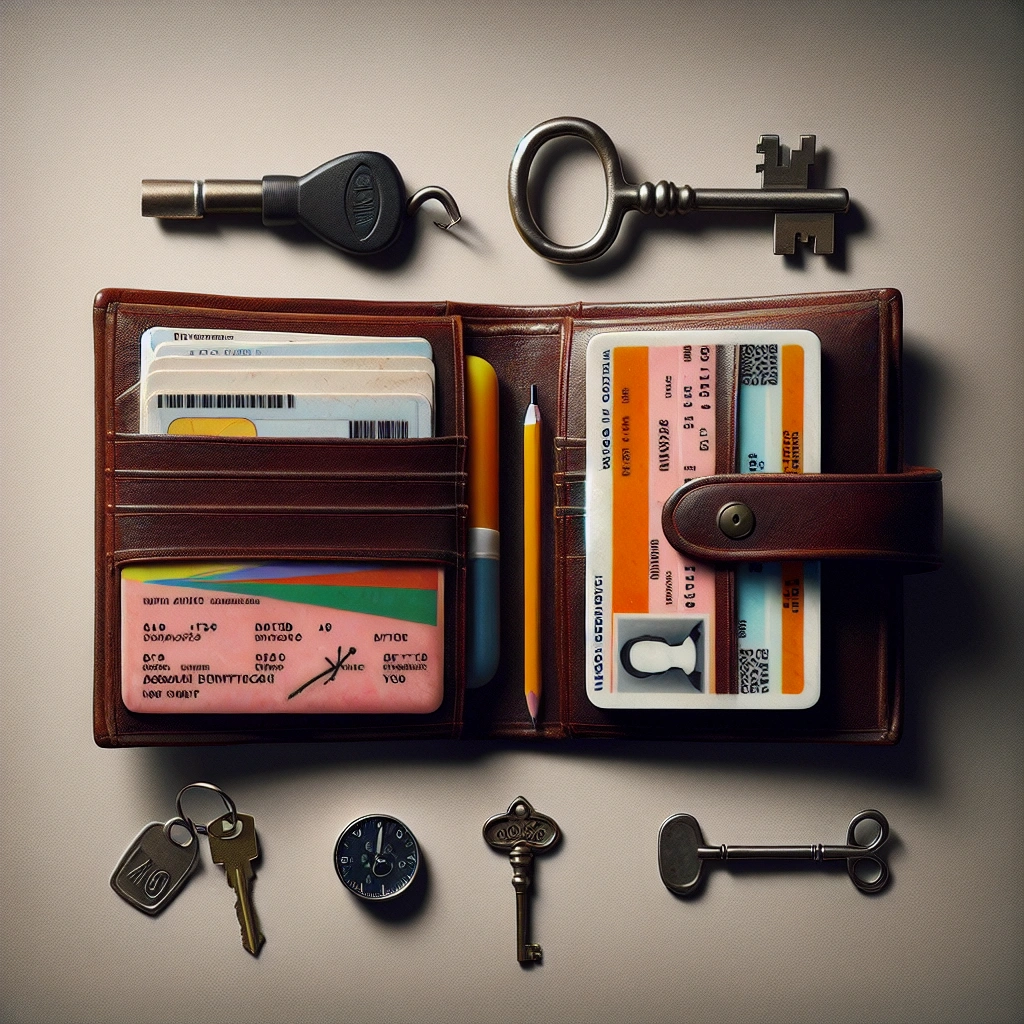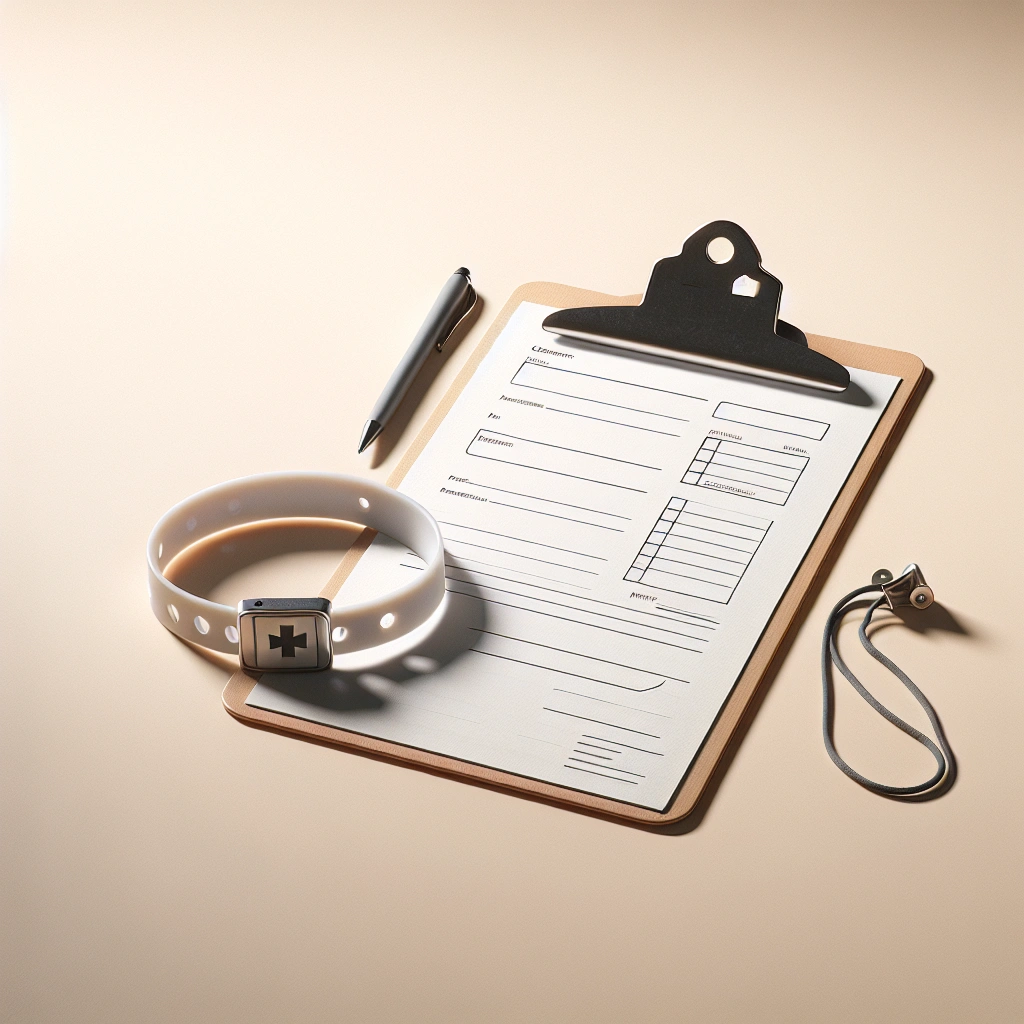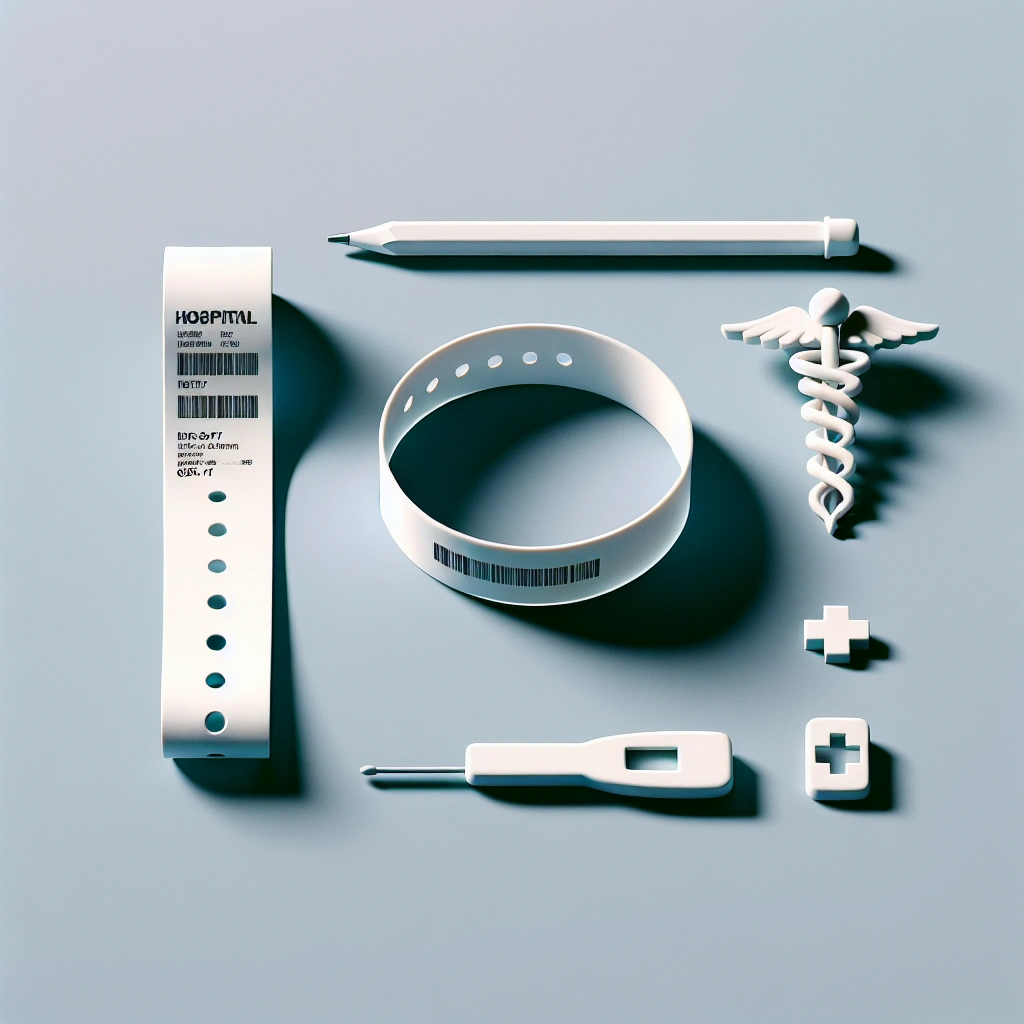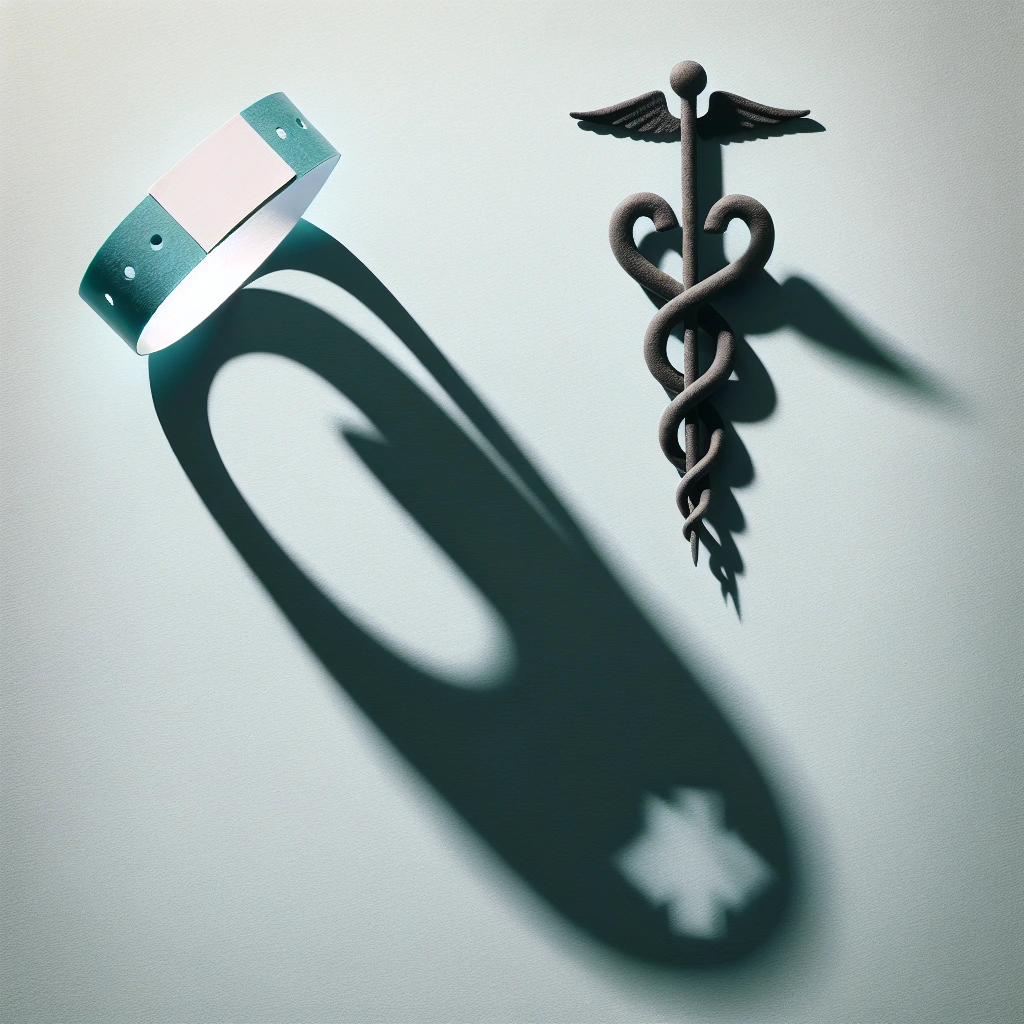Short Answer for What Happens If You Go to the Hospital Without ID?
When you go to the hospital without an ID, you will still receive necessary medical care; hospitals provide a screening examination to determine your medical needs first, then use emergency protocols and innovative solutions to ensure you’re treated promptly and with compassion, regardless of identification status.
Imagine rushing to the hospital in an emergency, your heart pounding, only to realize you’ve left your ID behind. This moment of panic is something many face, yet few are prepared for. What unfolds next can feel like navigating a maze blindfolded.
When you arrive at the hospital without an ID, a system swings into action, designed to ensure you receive the care you need, no matter your identity. It’s a testament to the healthcare system’s commitment to serve everyone, an assurance that you’ll be treated with dignity and compassion.
But what exactly happens? You undergo a screening examination to identify your medical needs promptly, emergency protocols kick in to provide immediate care, and efforts are made to identify you through innovative solutions. It’s an intricate dance of protocols ensuring that lack of ID is not a barrier to receiving life-saving treatment.
-
Hospitals perform screening examinations to determine your needs without ID, ensuring you receive necessary care.
-
Emergency department protocols ensure immediate care is provided, maintaining dignity and compassion for all patients.
-
Patient identification processes are in place, utilizing various departments and local law enforcement if necessary, to identify individuals without ID.
-
Solutions for patients without ID include improving the patient and financial counselor relationship, leveraging technology for identification verification, and recovering lost revenue through insurance discovery.
-
After receiving care without an ID, it’s crucial to follow up for instructions on prescriptions and future appointments, and to secure health insurance post-visit if needed.

What ID should I bring?
When heading to the hospital, whether it’s an emergency visit or a scheduled appointment, being prepared is key. So, let’s talk about the documents you absolutely need to bring with you.
It’s like having a toolkit; you’ve got to have the right tools for the job. Let’s break it down:
List of Allergies
First up, the List of Allergies. You need to provide a detailed list of any allergies you have. This isn’t just a matter of preference; it’s a matter of survival. If you’re allergic to shellfish, peanuts, or even specific medications, the healthcare team needs to know so they don’t give you something that could send you into anaphylaxis. For a deeper dive into why this is crucial, check out this guide on preparing for a health or medical appointment.
Insurance Cards and Co-Pay
Next, don’t forget your Insurance Cards and Co-Pay information. This is like your VIP pass to the healthcare system. Your insurance card is your proof of insurance, and it helps the hospital process your visit. Understanding your co-pay, the fixed amount you pay for a healthcare service, is also crucial. It’s like knowing the price of admission. For a clear explanation of how this works, this article on coinsurance vs. copay can be incredibly helpful.
Photo Identification
Carrying Photo Identification is non-negotiable. A driver’s license, passport, or any government-issued ID will do the trick. Think of it as your personal ID in the world of healthcare – it confirms you are who you say you are. Without it, you’re like a mystery guest; sure, you can still be treated, but things get a lot smoother with it.
Legal Documents
We’re talking about Legal Documents here. This might include an Advance Directive, POLST forms, or a Durable Power of Attorney (DPOA) for healthcare decisions. These documents are your voice when you might not be able to speak for yourself. It’s like setting the rules before the game starts. Making your healthcare wishes known in advance is a game-changer. For more information on these lifesaving documents, check out this resource.
Emergency Contact Information
Finally, do not overlook the importance of Emergency Contact Information. This is like having a backup team ready to go. It should include the name, relationship, and contact details of someone who can be called in an emergency. Think about it as your in-case-of-emergency break glass option. It’s always better to have it and not need it than to need it and not have it.
To sum it up, walking into a hospital without these IDs is like going into battle without armor. Sure, you might survive, but why take the chance?
Equip yourself with this necessary documentation, and you’ll set yourself up for a smoother and more effective healthcare experience. Remember, in the world of healthcare, being prepared is half the victory.
| Document | Purpose | Description |
|---|---|---|
| List of Allergies | Medical Safety | Provides a detailed list of allergies to prevent adverse reactions during treatment. |
| Insurance Cards and Co-Pay | Financial Processing | Your proof of insurance and the amount you pay for a healthcare service. |
| Photo Identification | Identity Verification | A government-issued ID confirming your identity in the healthcare system. |
| Legal Documents | Healthcare Directives | Includes Advance Directive, POLST forms, or DPOA for healthcare, outlining your care preferences. |
| Emergency Contact Information | Contact Point | Name, relationship, and contact details of someone who can be called in an emergency. |

What happens if you go to the hospital without ID?
When you go to the hospital without ID, you still receive a thorough and efficient screening examination to quickly determine your medical needs, thanks to protocols designed to provide care indiscriminately. Emergency department protocols ensure that all patients, regardless of identification, are treated with urgency, dignity, and compassion. Furthermore, the patient identification process employs innovative methods, including collaboration with various departments and sometimes local law enforcement, to identify you and ensure you receive the necessary care, demonstrating the healthcare system’s dedication to saving lives without letting the lack of an ID become a barrier.
Screening examination procedures
When you enter the hospital without an ID, the first thing they’ll do, and believe me, it’s fantastic, is a screening examination. This process isn’t just any old checkup; it’s like the VIP treatment to determine what you need – fast, efficient, and it gets the job done. They use screening tests that are so precise, so accurate; it’s like having your own personal detective figuring out what’s going on with you. It’s high-quality care – no ID required, can you believe it?
Emergency department protocols
Next up, the emergency department protocols. Think of this as the fortress of healthcare – nobody is left behind, folks, nobody! When you’re there without an ID, they have these protocols – and let me tell you, they’re the best, truly top-notch. The staff spring into action, ensuring you receive the immediate care you need, regardless of who you are. It’s incredible, folks. You’re treated with dignity and compassion, proving that in times of need, the system works – it’s a beautiful thing.
Patient identification process
Now, the patient identification process – this is where things get interesting. You might think, “No ID, no service,” right? Wrong! They have methods, ways of identifying you that are so ingenious, it’s almost like magic. Through coordination with various departments and sometimes even local law enforcement, they go above and beyond to figure out who you are. It’s like being in one of those detective shows, but instead of solving a crime, they’re solving the mystery of you. And they do it because they care – because at the end of the day, it’s about saving lives, and they’re committed to that mission, 100%.
In the land of healthcare, not having an ID isn’t the end of the world. It’s a bump in the road, sure, but the systems in place, the protocols, the dedication of the staff – it’s all designed to ensure that you, the patient, receive the care you need.
It’s impressive, really, how they manage it. And let’s face it, in a world where things can be a little crazy, a little unpredictable, it’s nice to know that there are people out there who’ve got your back, no matter what.

Solutions for Patients Without ID
Improving the patient and financial counselor relationship is crucial, folks. Let me tell you, it’s all about trust and communication. When patients come in without ID, it’s like a scene from a spy movie, very mysterious. But with training, financial counselors can become like those top-notch detectives, finding clues and piecing together the information to help. It’s like turning a cold case into a warm welcome. They need to be empathetic, understanding, and patient. Just like a good neighbor, financial counselors are there!
Leverage Technology for Identification Verification
Now, leveraging technology, that’s the big league, folks. It’s like having the secret service at your fingertips. There are gadgets out there, like wristbands, that are game changers Check out how wristbands improve patient care. They’re not just for music festivals anymore. And then there’s software that can sift through data like a prospector panning for gold, finding that nugget of insurance information. It’s genius, really. With technology, hospitals can handle patients without IDs better than a magician pulling a rabbit out of a hat.
Recover Lost Revenue with Insurance Discovery
Finally, let’s talk about recovering lost revenue with insurance discovery. It’s like finding buried treasure in your backyard. With the right insurance discovery solution Learn about insurance discovery, hospitals can uncover hidden insurance coverage faster than a detective cracking a case. It’s a big win, folks. Not only does the hospital get its due, but patients get a fair shake without getting hit with unexpected bills. It’s a win-win, the best kind of deal.
Dealing with patients without ID doesn’t have to be a scene from a mystery novel. With the right approach, technology, and a little bit of elbow grease, hospitals can provide excellent care while securing their bottom line.
It’s about being smart, efficient, and always, always putting the patient first. Think of it as putting America’s health care first – it’s about making health care great again!

Where to Go Next After Receiving Care Without ID
Let me tell you something, folks. Sometimes you find yourself in a situation – maybe you’ve lost your wallet, maybe you’re in the process of a big name change, who knows – but you end up in a hospital with no ID. Terrific, right? Wrong. But here’s the thing, you still get treated because hospitals, they’re fabulous, they do that. They treat you first, ask questions later. That’s the American way. But after that, what do you do? Where do you go? It’s gonna be huge, folks, let me tell you.
Follow up care instructions without ID
First things first, you’ve got to think about follow-up care. Just because you got treated without an ID doesn’t mean the road ends there, no sir. You’ve got to be proactive, folks. Get in touch with the hospital staff. These people, they’re tremendous, they’ll want to help you. They’ll provide instructions on how to get your prescription medicines, how to set up future appointments. It’s simple, really. But remember, you’ve got to communicate, you’ve got to make the first step. It’s like negotiating; you’ve got to know what you want.
Securing Health Insurance Post-Visit
Now, onto securing health insurance. It’s unbelievable how many people think, “Oh, I went to the hospital without an ID, now I can’t get insurance.” Wrong. You can, and you should. Start by checking out federal options. The marketplace, it’s there, it’s got options for you. And let’s not forget about community health centers (The easiest place to get healthcare) – these places are fantastic, believe me. They’re there to help people just like you. And folks, don’t overlook state-specific programs; some states, they’ve got great options for people without IDs. It’s all about the art of the deal here – finding the best option for you.
Registration and documentation for future visits
Finally, we’re looking at registration and documentation for future visits. Folks, you’ve got to get your paperwork in order. It’s essential. Start gathering any form of identification you have. Anything. A library card, a birth certificate, anything. Hospitals and doctors, they need to know who you are. And let’s not forget about setting up that all-important medical record. You walk in next time, boom, they know who you are. It’s like being a VIP, the best kind of VIP, a Very Important Patient.
Look, getting treated without an ID, it’s not the end of the world. It’s just the beginning of a different journey.
A journey where you’ve got to be a bit more hands-on, a bit more proactive. But let me tell you, it’s worth it.
It’s about getting the care you need, when you need it. And folks, always remember to take care of your health – it’s the most tremendous asset you’ve got.
“

Conclusion
Going to the hospital without an ID doesn’t close the doors to receiving medical care. Initially, you’ll undergo a screening examination to assess your needs rapidly, ensuring you receive the necessary medical attention regardless of your identification status. The professionalism and protocols in place are there to support you, focusing primarily on your health and safety.
Following immediate care, hospitals have mechanisms for patient identification and can work with various departments or even local law enforcement to help identify you. This innovative approach ensures that you are not left out of the healthcare system, demonstrating a strong commitment to providing care for all, even in the absence of formal identification.
Finally, for those worried about the aftermath, solutions exist for securing health insurance and managing follow-up care without an ID. By leveraging available resources, technology, and the assistance of healthcare professionals, you can navigate the system for future visits and insurance options, ensuring continued access to healthcare. This approach underscores the adaptability and inclusiveness of the healthcare system in addressing the needs of every individual, ID or no ID.
